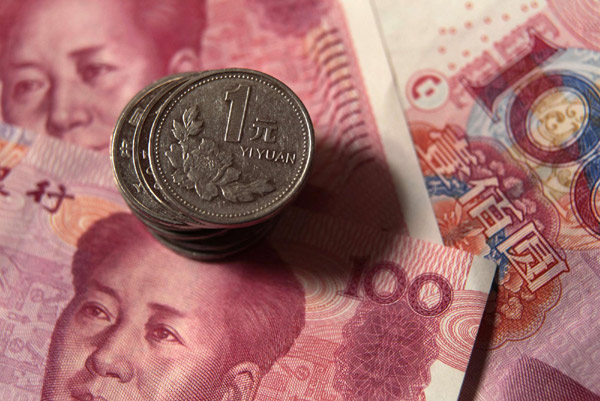China should continue tightening monetary policy
Updated: 2011-08-13 16:17
(Xinhua)
|
|||||||||||
|
 |
|
Chinese one yuan coins are placed on 100 yuan banknotes in this illustrative photograph taken in Beijing December 30, 2010. [Photo/Agencies]
|
China may hike the interest rates and required reserve ratios one or two more times by the end of the year to tackle the stubbornly high inflation, said Lu Zhengwei, chief economist of financial markets at the China Industrial Bank.
However, the recent US debt crisis, which has unnerved the global economy, makes it more difficult to predict the timing of these moves, Lu added.
The US is very likely to launch another round of quantitative easing to boost its sluggish economy. The US Federal Reserve may simply be waiting for the proper time to announce it, Lu said.
China should modify its own monetary policy based on its own conditions, regardless of whether or not the US will initiate a new round of quantitative easing, Lu said.
"Figuring out how to rein in excessive speculation without hurting the real economy is the biggest challenge for China," Lu said.
He also said there is still room for interest rate hikes, given the fact that the benchmark rate is still lower than it was before the global financial crisis broke out.
In addition, many enterprises saw their profits rebound in June, signaling that they can endure a further increase in interest rates, according to Lu.
China's inflation accelerated to a 37-month high of 6.5 percent in July, putting the government in a tough position as it faces the daunting task of taming prices and ensuring growth amid a faltering global economy.
The rating agency Standard & Poor's, in a historic move, downgraded the US credit rating from AAA to AA+ last week due to concerns over the country's debt problems.
Related Stories
China's monetary policy may change in H2 2011-08-11 17:18
China continues prudent monetary policy in H2 2011-08-01 15:33
China should maintain prudent monetary policy: official 2011-07-11 13:32
China to continue prudent monetary policy: PBOC 2011-07-05 09:25
Hot Topics
Anti-Gay, Giant Panda, Subway, High Speed Train, Coal Mine, High Temperature, Rainstorm, Sino-US, Oil Spill, Zhu Min
Editor's Picks

|

|

|

|

|

|







